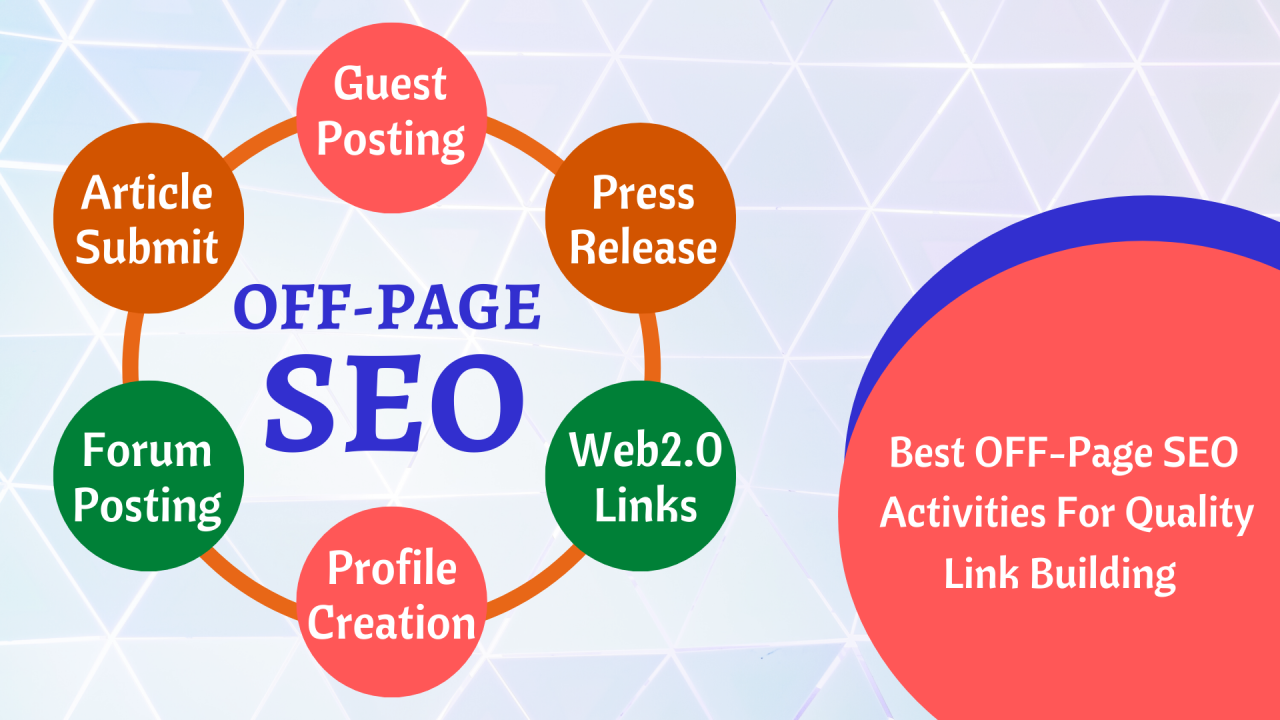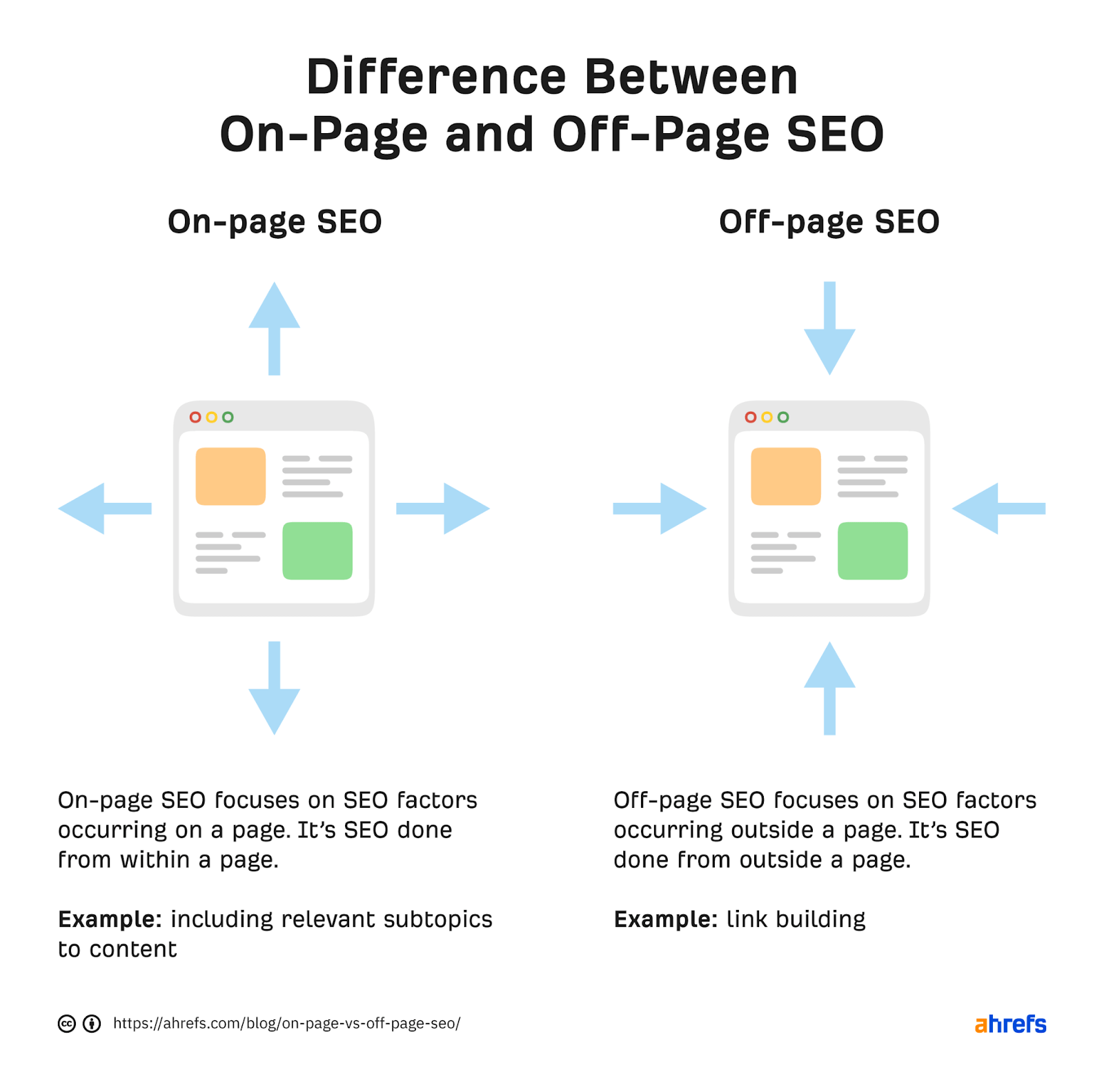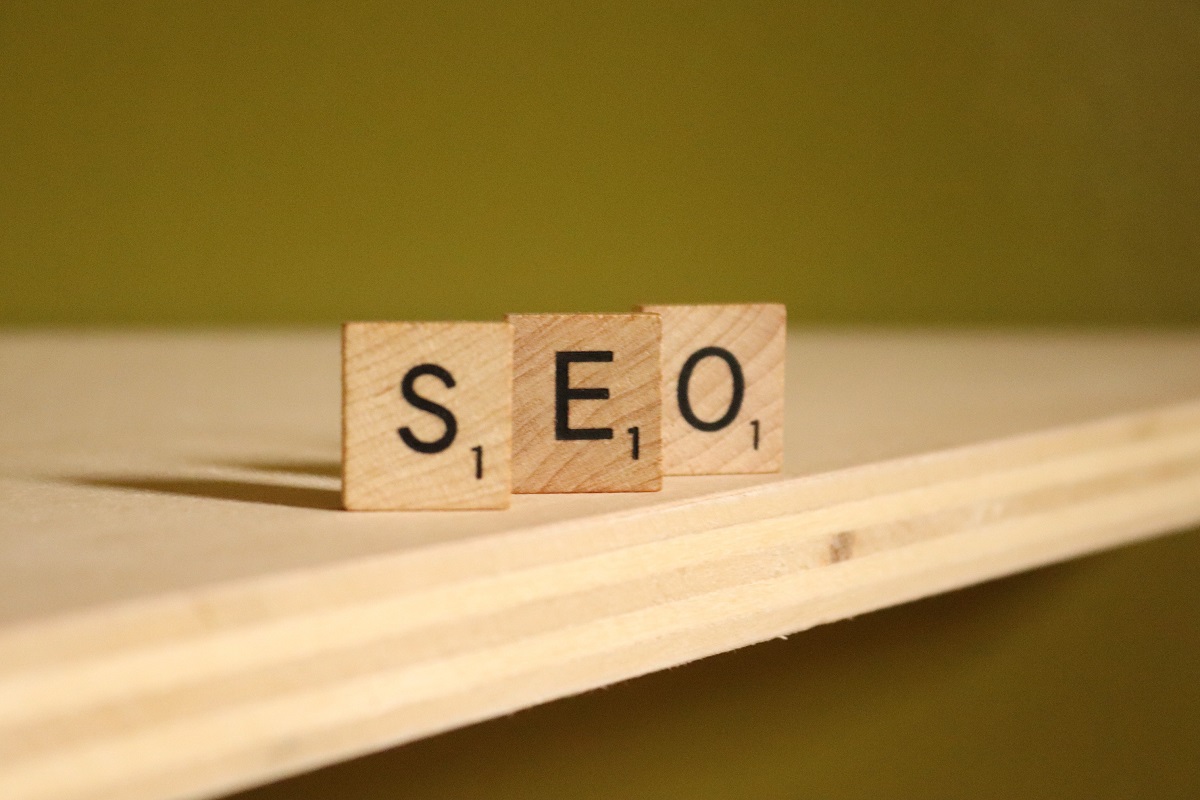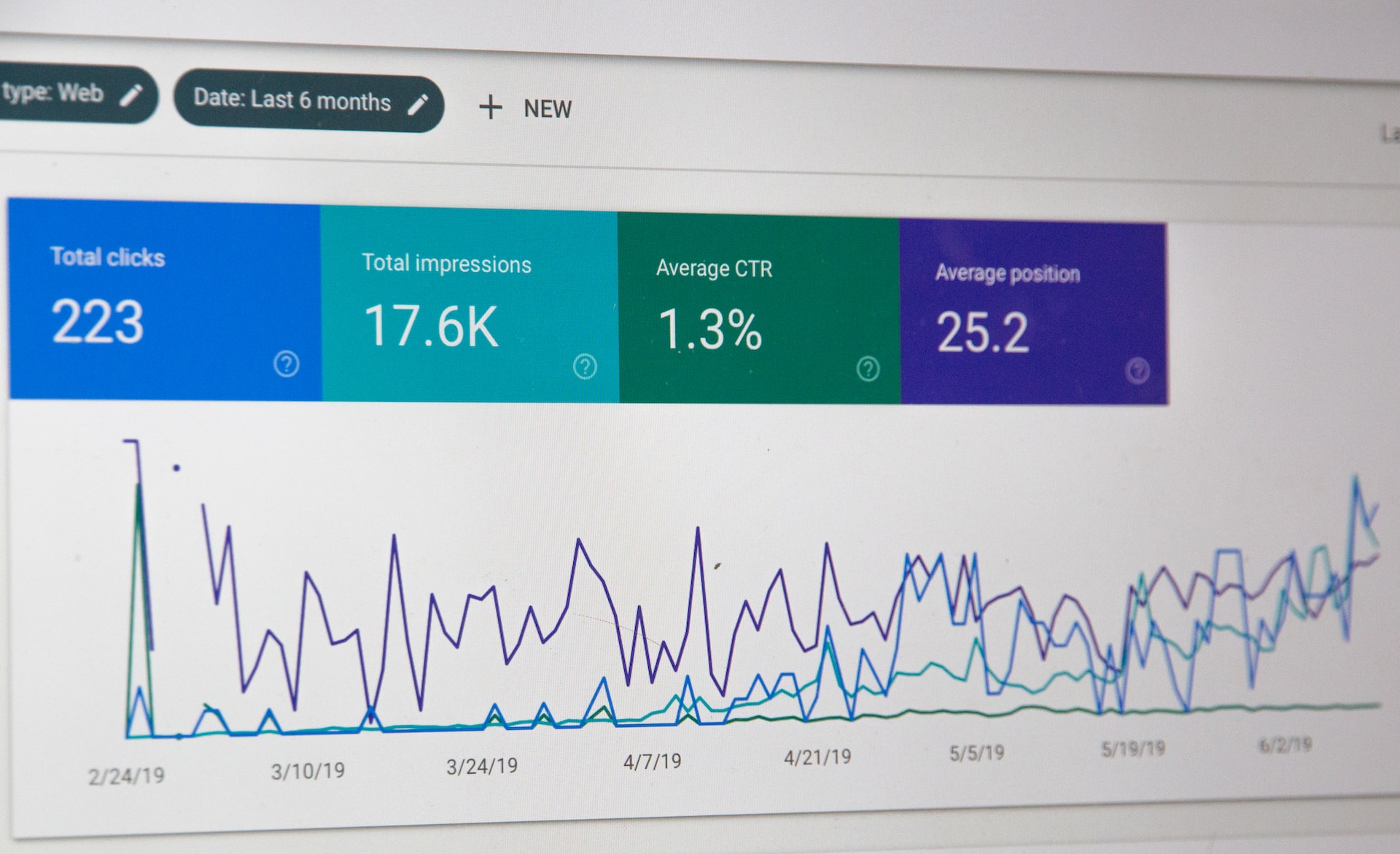SEO, or Search Engine Optimization, is a fundamental aspect of digital marketing aimed at enhancing a website’s visibility in search engine results pages (SERPs). However, SEO is not a monolithic practice; it comprises various strategies and tactics, including on-page and off-page optimization. Understanding the difference between these two approaches is crucial for implementing a comprehensive SEO strategy.
Understanding On-Page SEO
On-page SEO refers to the optimization efforts made directly on the website to improve its search engine rankings and attract organic traffic. It involves optimizing various elements within the website’s pages to make them more appealing to search engines.
Components of On-Page SEO
Title Tags
Title tags are HTML elements that specify the title of a web page. They appear as the clickable headline in SERPs and are crucial for both SEO and user experience.
Meta Descriptions
Meta descriptions provide a brief summary of a web page’s content. While they don’t directly influence rankings, well-crafted meta descriptions can improve click-through rates.
URL Structure
A clean and organized URL structure not only enhances user experience but also makes it easier for search engines to crawl and index web pages.
Keyword Optimization
Strategically incorporating relevant keywords into website content helps search engines understand the topic and context of the page.
Content Quality and Relevance
High-quality, relevant content that satisfies user intent is essential for ranking well in search results.
Internal Linking
Internal links connect different pages within the same website, facilitating navigation for users and distributing link equity throughout the site.
Exploring Off-Page SEO
Off-page SEO focuses on improving a website’s authority, relevance, and reputation through activities that occur outside the website itself. Unlike on-page SEO, off-page optimization involves actions taken beyond the confines of the website.
Components of Off-Page SEO
Backlinks
Backlinks, also known as inbound links, are external links pointing to a website. They are a crucial off-page ranking factor and serve as a vote of confidence from other websites.
Social Media Engagement
Active engagement on social media platforms can increase brand visibility, drive traffic to the website, and indirectly impact search engine rankings.

Online Reputation Management
Monitoring and managing online reviews, ratings, and mentions contribute to building a positive brand reputation, which can influence search engine rankings.
Brand Mentions
Even without a backlink, brand mentions across the web can contribute to a website’s authority and credibility.
Guest Blogging
Publishing content on reputable websites within the same industry can increase brand exposure and attract referral traffic.
Key Differences Between On-Page and Off-Page SEO
While both on-page and off-page SEO aim to improve a website’s visibility and rankings, they differ in focus, control, and impact.
Focus and Scope
On-page SEO primarily deals with optimizing individual web pages and their elements, such as content and metadata. In contrast, off-page SEO focuses on factors external to the website, such as backlinks and social signals.
Control and Influence
Website owners have direct control over on-page SEO elements and can modify them as needed. Off-page SEO, on the other hand, relies on external factors that may be less controllable, such as the actions of other websites and users.
Immediate vs. Long-Term Impact
On-page SEO changes can yield relatively quick results, as search engines can crawl and index updated content promptly. Off-page SEO efforts, particularly link building, often take time to accrue and demonstrate their full impact on rankings.

source: ahrefs
Examples Illustrating the Differences
An example of on-page SEO would be optimizing a webpage’s title tags and meta descriptions to include relevant keywords and attract clicks. In contrast, an off-page SEO strategy might involve reaching out to industry influencers to secure backlinks from authoritative websites.
Importance of Both On-Page and Off-Page SEO
While on-page and off-page SEO differ in their approaches, they are both integral to a comprehensive SEO strategy. On-page optimization ensures that web pages are well-structured, relevant, and user-friendly, while off-page optimization enhances a website’s authority, credibility, and reputation across the web.
Effective Strategies for On-Page SEO
To optimize on-page elements effectively, consider the following strategies:
- Conduct keyword research to identify relevant search terms.
- Create high-quality, engaging content that addresses user intent.
- Optimize title tags, meta descriptions, and headings for keywords.
- Ensure fast loading times and mobile responsiveness.
- Implement structured data markup to enhance search engine understanding of content.
Effective Strategies for Off-Page SEO
To improve off-page SEO performance, consider implementing these strategies:
- Develop a comprehensive backlink strategy, focusing on acquiring high-quality, relevant links.
- Engage with audiences on social media platforms and actively promote website content.
- Monitor brand mentions and respond promptly to feedback and inquiries.
- Collaborate with influencers and industry partners to amplify brand visibility and reach.
Measuring Success in On-Page and Off-Page SEO
Tracking and analyzing key performance indicators (KPIs) are essential for evaluating the effectiveness of both on-page and off-page SEO efforts.
- On-page SEO metrics may include organic traffic, keyword rankings, and dwell time.
- Off-page SEO metrics may include the number and quality of backlinks, social media engagement, and brand sentiment.
Utilize tools like Google Analytics, Google Search Console, and third-party SEO platforms to monitor performance and identify areas for improvement.
Conclusion
In summary, on-page and off-page SEO are two essential components of a successful search engine optimization strategy. While on-page SEO focuses on optimizing individual web pages for search engines and users, off-page SEO involves activities that occur outside the website to enhance its authority, relevance, and reputation. Both approaches are necessary for achieving sustainable organic search visibility and driving valuable traffic to the website.
FAQs
What are some common mistakes to avoid in on-page SEO?
Common on-page SEO mistakes include keyword stuffing, neglecting metadata optimization, and publishing low-quality or duplicate content. It’s essential to prioritize user experience and relevance when optimizing on-page elements.
How do I know if my off-page SEO efforts are working?
Monitoring changes in backlink profile, tracking referral traffic from external sources, and observing improvements in search engine rankings can indicate the effectiveness of off-page SEO efforts over time.
Can I prioritize one over the other in my SEO strategy?
While it’s possible to prioritize one aspect of SEO over the other temporarily, a balanced approach that addresses both on-page and off-page optimization is generally recommended for long-term success.
How long does it take to see results from on-page and off-page SEO?
The timeline for seeing results from on-page and off-page SEO can vary depending on factors such as website authority, competition, and the effectiveness of optimization efforts. While some changes may yield immediate improvements, significant progress often takes several weeks or months.
Is it possible to do SEO without focusing on both on-page and off-page aspects?
While it’s technically possible to see some SEO improvements by focusing exclusively on one aspect, neglecting either on-page or off-page optimization can limit the overall effectiveness of an SEO strategy. A holistic approach that addresses both aspects is essential for maximizing organic search visibility and traffic.





